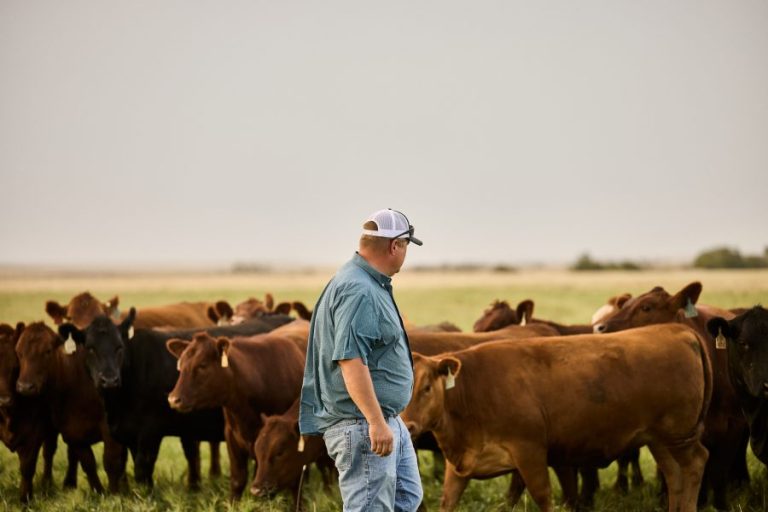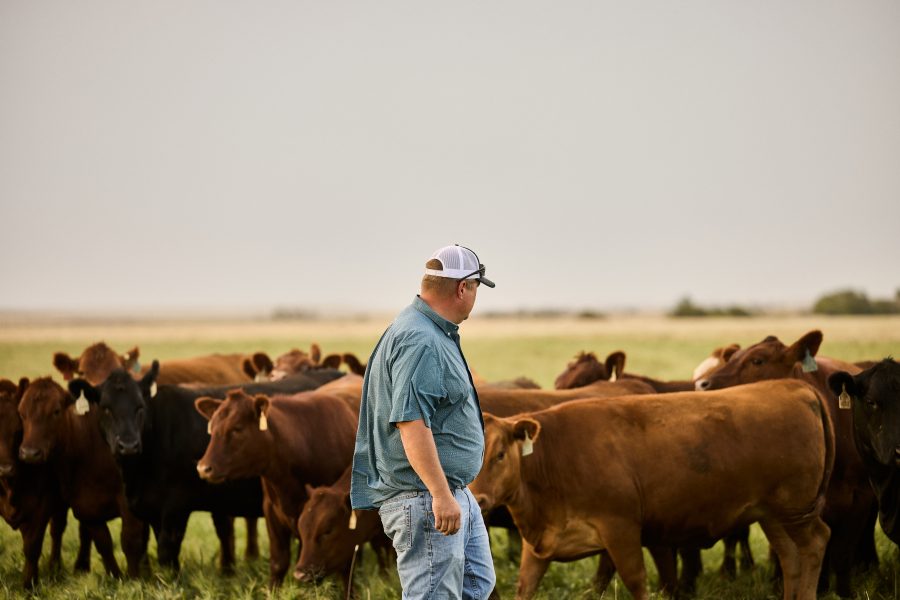WASHINGTON, D.C. – U.S. Rep. Dusty Johnson, R-South Dakota, denies allegations that a provision he helped insert into a draft of the federal farm bill would protect the maker of Roundup from pending lawsuits claiming that frequent use of the herbicide causes cancer.
“Our legislation doesn’t do anything in the courts,” Johnson said Wednesday in an interview with South Dakota Searchlight at the Sioux Empire Fair in Sioux Falls. “If somebody’s got a legitimate claim in court today, there isn’t anything that we would do to adjust their claim from a backward-looking perspective.”
Questions remain about the forward impact of the legislation. The Washington Post reported in June that Bayer, the manufacturer of Roundup herbicide, is seeking a “blockade against future lawsuits.”
The Post also reported that Bayer helped Johnson and Rep. Jim Costa, D-California, draft a measure that’s since been included in the House version of the farm bill. Johnson declined an interview request from the Post.
On Wednesday, South Dakota Searchlight asked Johnson if he worked with Bayer on the legislation.
“Listen, anytime you’re writing legislation, you need to be talking to a broad cross-section of stakeholders,” Johnson said. “Shame on any member of Congress who thinks they have all of the answers and just goes in and tries to make law for the whole country without talking to people who were affected.”
The measure would affirm federal authority over warning labels, which Johnson said would ensure a “science-based, evidence-based approach” aligning with federal guidelines.
He also said a national standard is necessary to prevent a patchwork of state regulations. He highlighted California as a state that has enacted its own labeling requirements.
“We can’t have effective interstate commerce if we have every single state doing their own label on these herbicides, pesticides,” Johnson said.
⌊ U.S. Supreme Court Rejects Bayer’s Bid To Stop Roundup Lawsuits ⌋
Attorneys general in 11 states, including South Dakota, took a similar position Wednesday by asking the Environmental Protection Agency to stop a patchwork of state labeling efforts. The attorneys general of Nebraska and Iowa announced the effort in Omaha, along with two farmers and state agricultural officials.
The Post’s June story cited legal experts who said the farm bill provision could effectively shut down some lawsuits against Bayer. The measure would prohibit state and local governments from penalizing or holding companies liable for pesticide warning rules that differ substantially from the federal government’s. Currently, the EPA does not recognize glyphosate, the main ingredient in Roundup, as a carcinogen.
Roundup’s uses range from residential weed control to large-scale farming. Bayer’s Roundup Ready Corn, for example, is genetically modified to tolerate applications of Roundup for weed control in fields.
A 2019 report from Investigate Midwest said farmers used an estimated 287 million pounds of glyphosate in 2016. Nearly 6% of that estimated usage — about 17 million pounds — was in South Dakota.
Critics of Johnson’s legislation, including environmental groups, argued in the Post story that the legislation undermines state autonomy and public health protections. They fear that by creating a single federal standard, the bill could limit the ability of plaintiffs to argue that they weren’t adequately warned about the dangers of Roundup.
Bayer has faced expensive litigation from plaintiffs alleging links between Roundup and cancer. In 2020, the company agreed to pay approximately $10 billion to settle lawsuits involving roughly 125,000 claims, without any admission of wrongdoing.
According to Open Secrets, a nonprofit that tracks money in politics, Bayer has spent $9.7 million on lobbying during the current election cycle. Open Secrets also reports that Johnson’s campaign committee received $1,000 from political action committees affiliated with Bayer in each of 2020 and 2022.
The House has not yet scheduled a vote on the 1,000-page farm bill. The current version of the bill expires Sept. 30.












